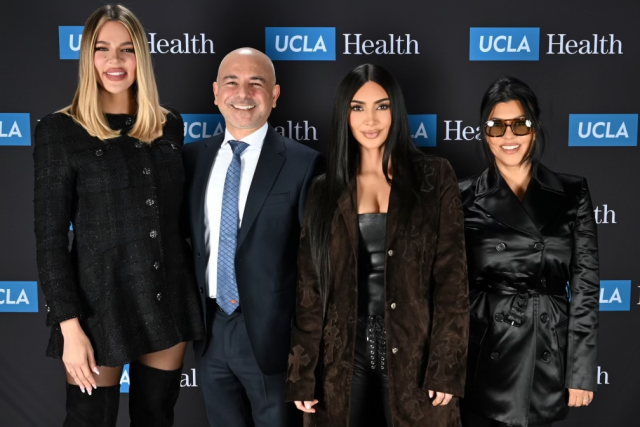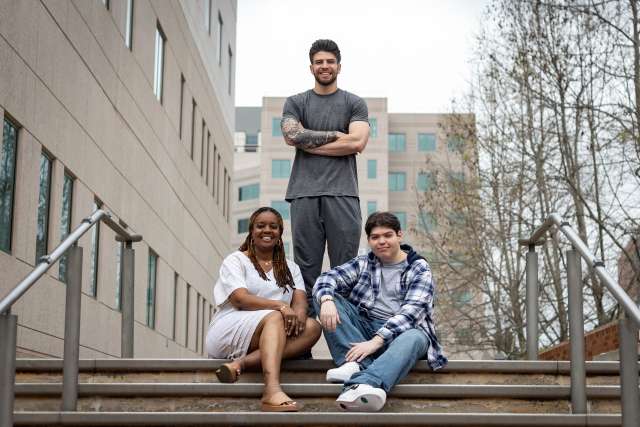Dr. David Sabatini, a Massachusetts Institute of Technology biologist and associate director of the Whitehead Institute for Biomedical Research at MIT, was honored by the David Geffen School of Medicine at UCLA for pioneering discoveries of mechanisms that regulate cell growth, propelling research into potential treatments for cancer and other diseases.
The medical school’s dean, Dr. Kelsey Martin, presented Sabatini with the 2018 Switzer Prize on Dec. 13 before he delivered a high-energy lecture to a packed auditorium. Nearly 300 people attended, filling every seat and overflowing into the aisles of UCLA’s Neuroscience Research Building. Sabatini also received a $25,000 honorarium and a statuette.
“David is an outstanding scientist who has made fundamental discoveries about cell growth that hold important implications for aging and neurodegeneration,” Martin said. “His research has spurred the development of new classes of drugs with the exciting potential to treat cancer and other disorders.”
Born and raised in New York, Sabatini is the son of Argentine immigrants and fellow scientists, David and Zulema, who watched proudly from the front row during his UCLA lecture.
As a graduate student at Johns Hopkins University School of Medicine, Sabatini identified mTOR, a central protein that turns cell growth on and off.
At the Whitehead Institute and MIT, his laboratory uncovered both the molecules that control when mTOR is active and the molecules through which mTOR promotes cell growth. The identification of this signaling pathway — critical to cancer, metabolism and aging — provides a rich set of targets for drug development.
Sabatini took the UCLA audience on a sweeping tour of his research into mTOR, which first captured his attention when he was a graduate student 25 years ago.
“When I started my laboratory at the Whitehead Institute and MIT, I was advised to stop working on mTOR,” Sabatini said. “It was advice I seriously considered, but ultimately ignored because I did not know how to do anything else,” he admitted in an earlier PNAS article.
Sabatini’s lab has made numerous advances explaining how mTOR detects nutrients. For example, his team uncovered a new signaling pathway that sniffs out amino acids and signals inside cells.
“We discovered mTor has ‘antennae’ that can sense and detect oxygen, nutrients, energy and growth factors,” he said. Researchers later tied many aspects of the nutrient-sensing pathway to disorders such as epilepsy and cancer.
Sabatini has earned more than two dozen awards in recognition of his contributions to science. He was elected to the National Academy of Sciences in 2016; awarded the 2017 Lurie Prize in Biomedical Sciences; and has been funded as an investigator for the Howard Hughes Medical Institute since 2008.
In keeping with his commitment to shaping the future generation of scientists, Sabatini met with UCLA graduate students after the lecture to share insights from his career.
“David is not only the most influential biomedical researcher of my generation, he is also an excellent mentor and colleague,” said Heather Cristofk, a UCLA associate professor of biological chemistry and pharmacology. “David’s trainees love working with him, which speaks volumes about the type of scientist he is.”
The Switzer Prize was named in recognition of Irma and Norman Switzer, a Los Angeles couple who bequeathed $50 million to the medical school. The annual award honors revolutionary discoveries in basic research in the biological and biomedical sciences and celebrates recent advances with the potential to inspire breakthroughs in medicine.
The Geffen School of Medicine is currently accepting nominations for the 2019 Switzer Prize.



